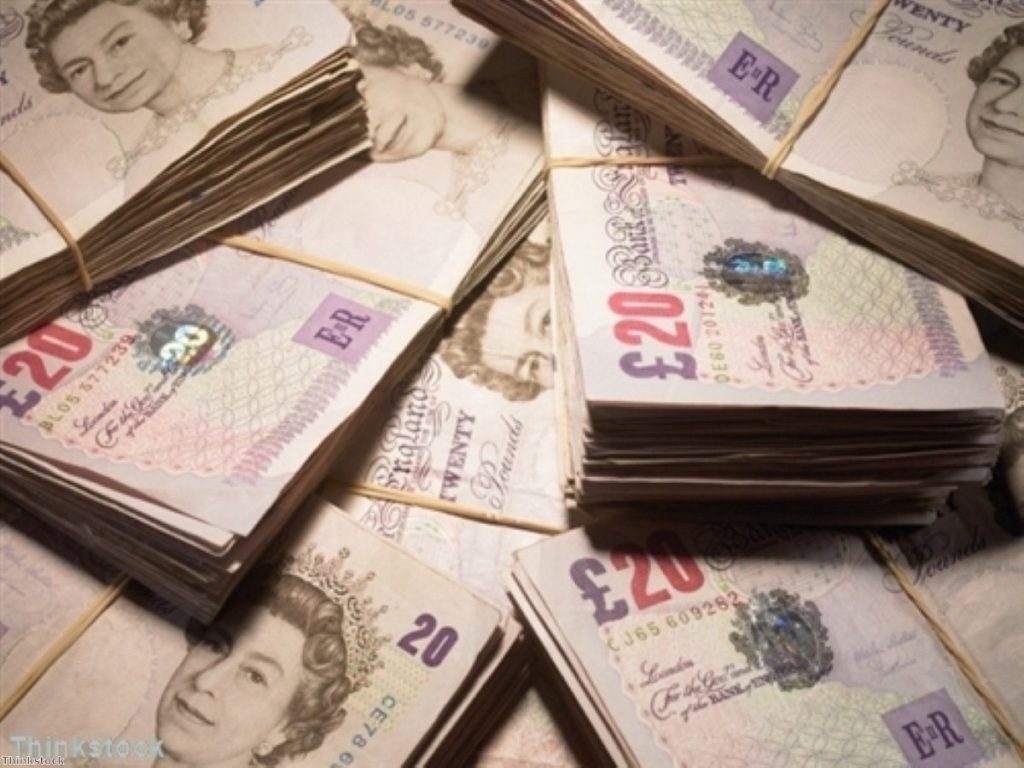Miliband’s woes compounded by money trouble
Labour continued to lose ground in the battle for cash ahead of next year's general election, new figures show.
Quarterly statistics released by the Electoral Commission showed the Conservatives received £6.8 million in the three months to September this year – more than double the £3.2 million clocked up by the Labour party.
The gap between the two parties narrowed after the Tories topped £7 million of donations between April and June, but Ed Miliband's party continues to trail behind David Cameron's in the struggle for the money which will fuel campaigning in 2015.
Labour remains heavily in debt, now owing £12 million in loans compared to the Tories' £1.2 million.


The Liberal Democrats had a good quarter, receiving £2.7 million. A £950,000 bequest from a Mr George G Watson was the largest single donation received in the period.
A £521,263 donation from the Union of Shop, Distributive and Allied Workers was second.
The Scottish National party benefited from three substantial donations, two worth £500,000 and one £400,000, by individuals in the period – funds which ultimately failed to sway the result of the Scottish independence referendum on September 18th.
Ugly money
It's been a controversial period for party funding, with the Tories' sources in particular attracting criticism.
Michael Farmer, who gave £302,980, is listed as 'Mr Michael S Farmer' on today's documentation. He was handed a peerage weeks afterwards.
Yesterday the Conservatives published a list of the exclusive 'Leader's Group' of donors who are able to buy access to the party's senior figures – including the prime minister – in exchange for a donation of at least £50,000.
Among those named were financier Sir Adrian Beecroft, Russian oligarch Alexander Temerko, art dealer James Stunt and pollster Lord Ashcroft.
At least we know the identities of these people. The really critical money – that which will be spent in the marginal constituencies that will decide who wins in 2015 – is being provided by people who prefer to remain faceless.
That they are able to do so is the result of a loophole in the law that allows 'unincorporated associations' to receive anonymous donations of up to £7,500.
The alternative is surrendering anonymity if a donation to the local party exceeds £1,500. Most prefer to keep their support for the Tory party secret – which is why Tory dining clubs are playing such an important role in 2015.
According to Labour they are responsible for providing the Tories with 40% of the funding they've received for key marginal seats.
"The Tories are trying to buy the election through secretive supper clubs," said shadow Cabinet Office minister Jon Ashworth.
"The Tories can't beat Labour on the number of activists campaigning on the ground in key seats, but they have a steady stream of big donors willing to bankroll their campaign. David Cameron is encouraging his candidates to use these secretive clubs to fund their campaigns and official Conservative party guidance seems to encourage secrecy rather than transparency."
That is a reference to Tory guidelines to local MPs, which "advise" that the cash be siphoned into the "constituency fighting fund instead, where this additional reporting does not reply".
While the Conservatives continue to prosper, Miliband's policies seem to be costing Labour dear.
In particular it is wealthy Jewish donors who are being put off by his pro-Palestinian stance.
"I have been a Labour supporter all my life and I would like to see a Labour government, but, on the other hand, I'm not entirely sure I want to see Ed Miliband in Downing Street or Douglas Alexander in the Foreign Office," one told the Independent newspaper.
At least Labour has got its paperwork in order, along with 399 other parties in the third quarter.
Among the seven which failed to submit a donation report by the Electoral Commission's deadline were the For Russia party, the Scottish Jacobite Party and Britain First.


